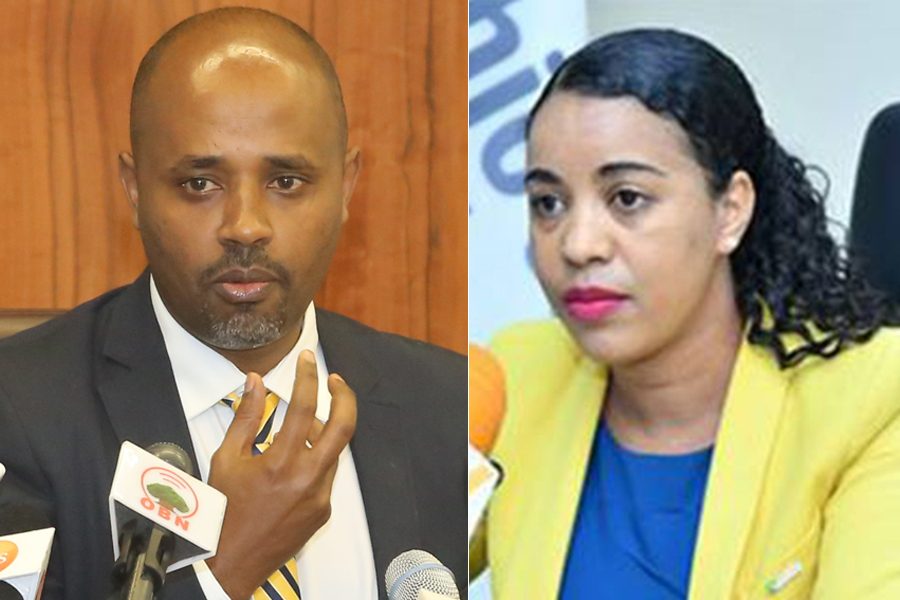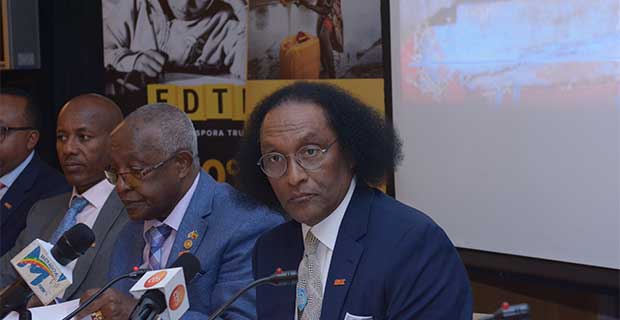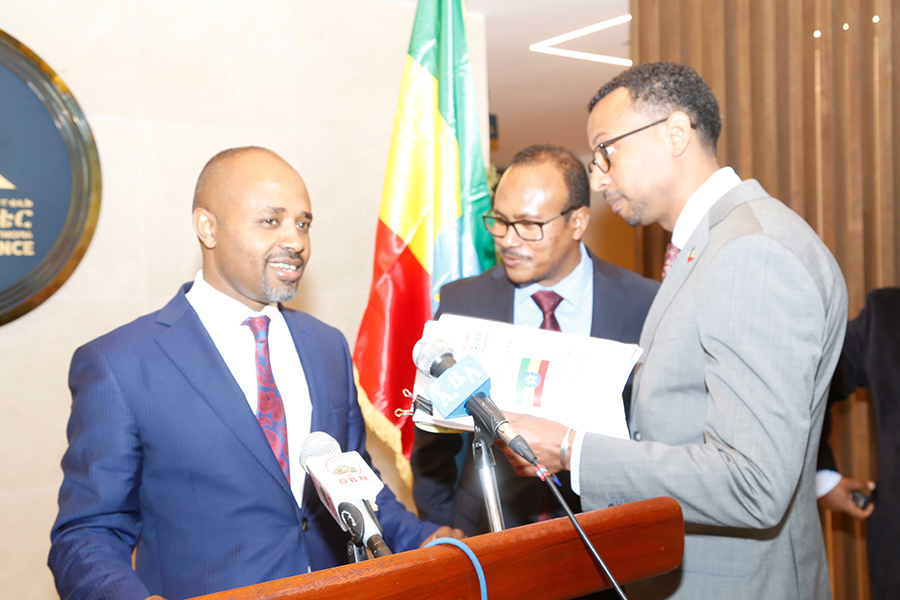
Bracing itself to remain competitive after the liberalisation of the telecom sector, Ethio telecom has split its network infrastructure department into five divisions for service efficiency.
The country's sole telecom operator is also hoping to lease its infrastructure to the two operators that are expected to join the industry next year. It plans to generate income by renting out its 7,100 towers and over 22,000Km of fibre optics to interested telecom operators.
The company's network infrastructure, which is run by 5,400 people, has been split into five divisions, falling under infrastructure or services based on the nature of the network. The divisions are Fixed Network, Wireless Network, Infrastructure-Power & Environment, Infrastructure-Transport Network, and National Operation & Service Management.
The Fixed Network division uses a wired network for voice and data communication, while the Wireless Network is a division that runs the operation of wireless devices or systems in a fixed location reliant on tower networks. The Power & Environment team will handle land acquisition, towers, and supplying power from solar power or generators to fixed networks.
The Transport Network division deals with the transmission and traffic of data between devices. The National Operation & Service Management division, which directly reports to the CEO, is tasked with monitoring services and acts as an information hub. It has a system that reports technical glitches to the relevant department to deploy technical teams to fix issues.
"We made the functional split to make the company efficient, and it is one of the best restructurings we've done," said Frehiwot Tameru, CEO of Ethio telecom. "Mixing power, transmission, wireless and fixed infrastructure and networks was a headache, and the restructuring gave us a big relief."
The new draft licensing directive, which was drafted by the Ethiopian Communications Authority is currently the consultation process, allows for telecom companies to build their infrastructure or use existing infrastructure through a lease agreement.
Leasing infrastructure will encourage Ethio telecom to improve its setup while creating an excellent and sustainable market opportunity, according to Frehiwot.
"We can work as an intracom company that provides infrastructure such as towers and fibre optics for other telecom companies," he told Fortune. "It'll also help the company maintain its position in the market."
Before starting to share infrastructure, the company will require a little investment and reinforcement to make the existing infrastructure capable of hosting other operators, according to the CEO.
"We're planning to approach the companies that we anticipate to join the industry and asking them to rent out our infrastructure," she told Fortune.
Restructuring and dividing the company won't bring about efficiency, according to Terrefe Ras-Work, a telecom expert with over three decades of experience who also believes that the idea of privatisation itself was a big mistake.
"The right decision would have been to follow the lead of Ethiopian Airlines and strengthen the company," he said. "Trying to stay competitive after privatisation is meaningless."
The problem with Ethio telecom has been managerial instability as the past 27 years has shown, added the expert.
"The strength of Ethio telecom is that it is under a government monopoly," he said. "For a big sector like that, which is involved in every aspect of the nation's activity, staying strong after the privatisation will not happen."
Ethio telecom pulled in 47.7 billion Br in revenues during the just ended fiscal year. Of these revenues, 147.7 million dollars was in foreign currency. Revenues from mobile voice calls, data and internet contributed 49pc, 29pc and nine percent, respectively. Value-added and other services contributed 9.4pc and 3.6pc, accordingly.
In the reporting period, the company paid 11.3 billion Br in taxes and four billion Br in dividends. It also serviced 318.4 million dollars of its debt during the past fiscal year.
Showing 5.8pc growth, total telecom users reached 46.2 million. From this figure, 44.5 million are mobile voice call users, while 23.8 million are users of mobile data and internet—the remaining use broadband and fixed-line services.
Recently, the Ministry of Finance hired Deloitte to advise on the partial privatisation process of the company for 3.8 million dollars. The government is currently in the process of selling 40pc of the company's shares to an international firm while retaining a 55pc ownership. The remaining five percent of shares will be availed to interested buyers in the country, as well as the diaspora.
PUBLISHED ON
Aug 01,2020 [ VOL
21 , NO
1057]


Fortune News | Feb 05,2020

Radar | Feb 08,2020

Fortune News | Nov 29,2020

Fortune News | Nov 09,2019

Dec 22 , 2024 . By TIZITA SHEWAFERAW
Charged with transforming colossal state-owned enterprises into modern and competitiv...

Aug 18 , 2024 . By AKSAH ITALO
Although predictable Yonas Zerihun's job in the ride-hailing service is not immune to...

Jul 28 , 2024 . By TIZITA SHEWAFERAW
Unhabitual, perhaps too many, Samuel Gebreyohannes, 38, used to occasionally enjoy a couple of beers at breakfast. However, he recently swit...

Jul 13 , 2024 . By AKSAH ITALO
Investors who rely on tractors, trucks, and field vehicles for commuting, transporting commodities, and f...

Jun 28 , 2025
Meseret Damtie, the assertive auditor general, has never been shy about naming names...

Jun 21 , 2025
A well-worn adage says, “Budget is not destiny, but it is direction.” Examining t...

Jun 14 , 2025
Yet again, the Horn of Africa is bracing for trouble. A region already frayed by wars...

Jun 7 , 2025
Few promises shine brighter in Addis Abeba than the pledge of a roof for every family...